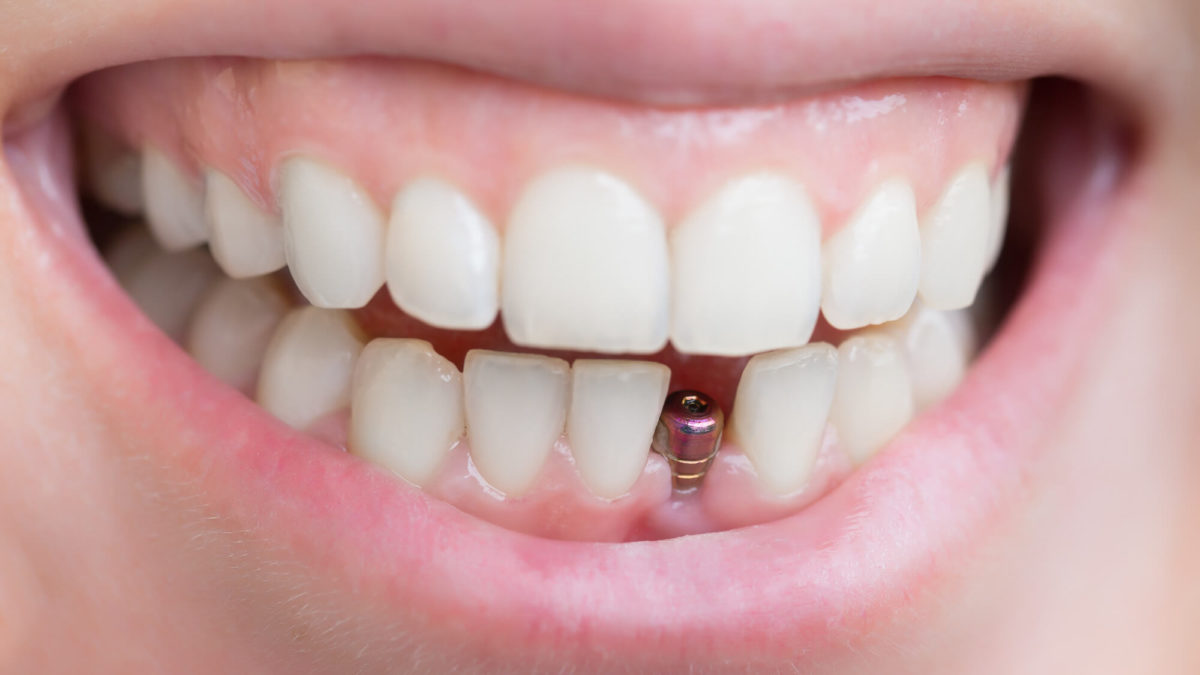
Receding Gums Treatment Singapore: Can Receding Gums be restored?
Receding gums are a condition in which the gum tissue that surrounds the teeth pulls away from them, exposing more of the tooth’s surface. If you have gum disease and wouldn’t want to deal with other complicated conditions like periodontal disease, the most viable option for you is to get a timely receding gums treatment. Singapore is home to many dental clinics that offer receding gums treatment so it should be easy to find one near you.
The most common cause of receding gums is gum disease, which is caused by plaque and tartar buildup on the teeth. Other possible causes of receding gums can include:
- Brushing your teeth too hard: One of the most common causes of receding gums is brushing your teeth too hard. If you brush your teeth with too much force, you can wear away the gum tissue and expose more of the tooth’s surface.
- Teeth grinding or clenching: Grinding or clenching your teeth can also cause receding gums. When you grind your teeth, you put a lot of pressure on the gum tissue, which can cause it to recede.
- Smoking: Smoking is another known risk factor for receding gums. Tobacco smoke can irritate the gum tissue and make it more susceptible to disease.
- Poor oral hygiene: If you don’t practice good oral hygiene, plaque and tartar will build up on your teeth and gums. This can lead to gum disease and receding gums.
What are the Symptoms of Receding Gums?
Receding gums don’t always cause any symptoms, but when they do, they can include:
- Gums that bleed easily: When you brush your teeth, if you notice that your gums bleed more than usual, it could be a sign that they are receding.
- Red, swollen gums: Another common symptom of receding gums is red, swollen gums. This can be a sign that the gum tissue is inflamed and irritated.
- Gums that look pulled back: If you look in the mirror and notice that your gums are pulling away from your teeth, it’s likely that you have receding gums.
- Tooth sensitivity: If your teeth are sensitive to hot or cold temperatures, it could be a sign that you have receding gums.
- Bad breath: If you have bad breath, it could be a sign that you have gum disease, which is often caused by receding gums.
- Tooth decay: Receding gums can also lead to tooth decay, as they expose more of the tooth’s surface to plaque and bacteria.
How are Receding Gums Treated?
The treatment for this condition will vary depending on the individual case. In general, however, your receding gums treatment in Singapore may include:
- Scaling and root planing: This is a deep cleaning treatment that involves scraping off the plaque and tartar from the teeth and roots. The roots are then planed (smoothed down) to help prevent further plaque and tartar buildup.
- Antibiotics: If gum disease is present, your dentist may prescribe antibiotics to help fight the infection.
- Gum surgery: In some cases, surgery may be necessary to correct the receding gums. This may include a procedure to reattach the gum tissue to the teeth or remove excess tissue.
- Laser therapy: Laser therapy can be used to treat receding gums. It uses a laser beam to kill bacteria and promote healing.
- Dental implants: Dental implants can be used to replace missing teeth and help anchor the teeth in place. This can help reduce the risk of receding gums.
- Orthodontics: If you have overcrowded teeth or teeth that are out of alignment, orthodontics may be recommended to help correct the problem. This can help reduce the tension on the gum tissue and prevent receding gums.
Can Receding Gums be restored to their Original State?
One of the most common questions we get with people who visit our periodontist clinic for receding gums treatment in Singapore is; can gums grow back after receding? Now the answer is; the gums do not grow back after they have receded. However, there are treatments that can help reattach and restore your gum tissue around the affected teeth.
So, partly, it is possible to restore your receding gums, but it requires time and patience. The first step is to stop any bad habits that may be contributing to the problem, such as brushing too hard, using a toothbrush with stiff bristles, or flossing aggressively. You should also avoid eating sticky or sugary foods, which can cause plaque and bacteria to build up on your teeth.
Once you’ve corrected your oral hygiene habits, you can begin treatment with a special gum recession paste or gel. This paste or gel will help to stimulate new gum tissue growth and encourage the reattachment of lost gum tissue. In most cases, it will take several months of daily use before the desired results are seen.
If the gum recession is severe, or there is extensive tooth decay or loss, you may need to undergo surgery to correct the problem. Surgery can involve reattaching the gum tissue to the teeth, removing excess tissue, or even dental implants. It is important to seek professional help if you are experiencing any of the symptoms of receding gums, as left untreated, the condition can lead to tooth decay, gum disease, and even loss of teeth.
What you can do to Prevent Receding Gums from Happening in the First Place
There are several things you can do to help prevent receding gums from happening in the first place. Some of these include:
- Brushing your teeth twice a day with a soft-bristled toothbrush and fluoridated toothpaste
- Flossing your teeth once a day
- Avoiding sugary foods and drinks
- Seeing your dentist for a check-up and cleaning every six months.
- Using a dental recession paste or gel to stimulate new gum tissue growth.
If you follow these tips, you can help keep your gums healthy and reduce the risk of receding gums. Remember, early detection is key, so if you suspect you may be experiencing any of the symptoms of receding gums, please see your dentist as soon as possible.
How often should you visit your Dentist for a Check-up and Cleaning?
The American Dental Association recommends visiting your dentist for a check-up and professional cleaning at least twice a year. This will help keep your teeth and gums healthy and free of plaque and bacteria.
This is especially important if you are at risk for gum disease, as early detection and treatment are key to preventing further damage. If you are experiencing any of the symptoms of receding gums, be sure to visit your dentist as soon as possible for a full evaluation.
Final Thoughts
While it may not be possible to grow your gums back after they have receded, there are treatments available that can help restore the tissue and protect your teeth from further damage. Be sure to correct any bad oral hygiene habits, and visit your dentist for a check-up and professional cleaning at least twice a year.
We can help you get your smile back on track. Contact us today to schedule a consultation! We offer a wide range of dental services, including gum recession treatment, to help you get the smile you deserve. For more information, call: 8588 9868 or 6513 9549.
An Dental | Dentist Orchard
360 Orchard RD, #03-06/07 International Building Singapore 238869
+65 6513 9549
https://drmarleneteo.com/
https://andental.sg/






